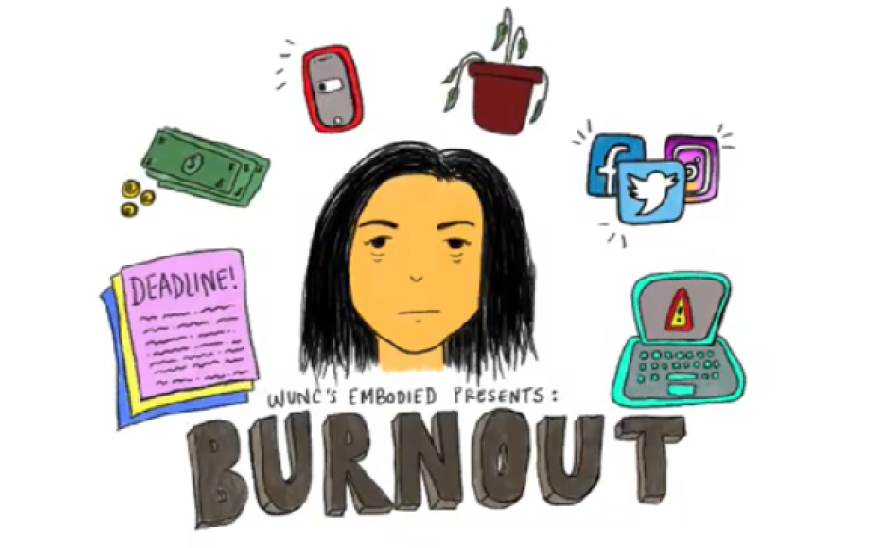The World Health Organization now officially lists workplace burnout as an occupational syndrome in its International Classification of Diseases manual.
A report from Harvard and Massachusetts medical organizations calls physician burnout a public health crisis. And a 2018 Gallup study determined 23% of full-time employees said they feel burned out at work very often or always, with an additional 44% who said they sometimes feel burned out. So what exactly is burnout, and what can be done about it?
Host Anita Rao talks with a range of experts and guests about the condition and their experiences with it. Rajvinder Samra shares the history of burnout and talks about how it has been studied in the healthcare profession. She is a lecturer in the School of Health, Wellbeing and Social Care at The Open University based in the United Kingdom.
Amelia Nagoski shares what she learned from co-writing “Burnout: The Secret to Unlocking the Stress Cycle” (Ballantine Books/2019). Nagoski is an associate professor and music coordinator at Western New England University. She talks about how the stress cycle works, and provides tips on how to handle the stressors and systems that contribute to burnout.
I think the reason a lot of us don't notice that we're burning out is because we're doing what we're supposed to do. We have learned from society that we are givers.- Amelia Nagoski
Kayla Blado joins the conversation to explain why she says unionizing — not self-care — is the answer to burnout. Blado is the president of the Nonprofit Professional Employees Union and director of media relations for the Economic Policy Institute.
And Emilio Vicente shares his experience of burnout as an activist who is working to change policies that directly affect him as an undocumented person. He is the communications manager for Familia: Trans Queer Liberation Movement.
Interview Highlights
Nagoski on how people get stuck in the stress response cycle:
Stress is a cycle that happens in your body. And it's meant to be completed the way it was completed in the environment of evolutionary adaptiveness when we would run away from a lion and save our lives through that physical exertion and run through all the neurochemicals and hormones that are associated with that stress response. But unfortunately, today, the stressors like traffic and work — they can't be solved by running away or punching anybody in the face. So we need to separate the stress from the stressors and complete this stress response cycle separately and independently from dealing with the stressors.
Samra on the 1978 report on burnout in the air traffic controller profession:
It's important to understand burnout is more likely to be a failure of recovery than resilience. - Rajvinder Samra
[The researchers] were trying to understand why you would get these people that had such resilience developing burnout. And part of that is: People that have high professional and personal ideals, as they begin to work hard and overwork and they experience exhaustion, the answer is just to work more … They concluded [in] the report that the highly competent workers actually feared burnout. And once burnout began to happen, it became a self-fulfilling prophecy.
Vicente on being an activist who works on issues that directly affect him:
There isn't a switch where I can just turn off these issues and not think about them. Because the reality is — especially for marginalized communities, communities of color, communities that are continually attacked by policies at the local, state and federal level — you can't just disassociate who you are and from one day to the next go on and try to do something else.
What I've realized about success is that you have to think about the long term, that you might not be able to have an impact within the next few weeks or days or months, that it might take a few years. -Emilio Vicente
Blado shares a tip for those experiencing burnout:
The journaling and other types of self care that were brought up are very important. But I think that that shifts the burden back onto the person who's feeling burnout and who's a victim of the systemic issues. And so I would say forming a union is one way to address these issues before they become stressors and fix them at your workplace with your colleagues so that you can prevent burnout across your organization.
NOTE: This program originally aired on September 19, 2019.



